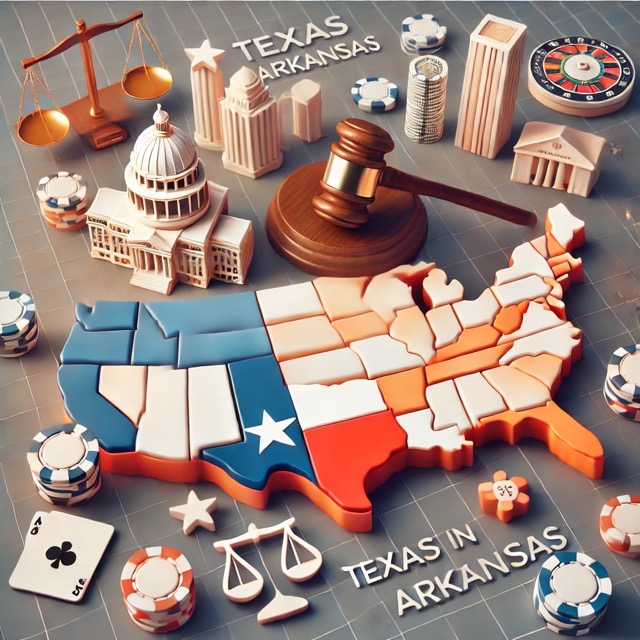
As the 2024 U.S. Presidential election looms, the gambling industry is keeping a close watch on potential outcomes that could dramatically alter the legislative landscape in key states like Texas and Arkansas. If Donald Trump were to regain the presidency, there are implications for gambling expansion in these traditionally conservative regions.
Texas, with its massive population and economic influence, has long been seen as the “big prize” for gambling operators. However, under the leadership of Governor Greg Abbott and Lieutenant Governor Dan Patrick, the state has maintained its resistance to full-scale casino and sports betting legislation. Trump’s potential appointments of either Abbott or Patrick to cabinet positions could alter the dynamics in Texas. Without these staunch opponents in the local political arena, the state legislature may finally have a clear path toward passing gambling expansion bills.
In Texas, the possibility of opening the door to sports betting or even casino gambling is particularly significant for the industry. Given that Texans currently spend billions gambling in neighboring states like Louisiana and Oklahoma, capturing that revenue in-state could provide a major economic boost. Furthermore, the legislative opportunity for Texas only comes around in odd-numbered years, meaning a shift in political leadership could position the state for significant gambling reforms in 2025.
Similarly, in Arkansas, Governor Sarah Huckabee Sanders, who served as Trump’s press secretary, could be seen as an ally for gambling expansion if Trump wins. While Arkansas already has land-based casinos and sports betting, the next frontier is iGaming. Despite her father’s historic opposition to online gambling, Sanders has been relatively quiet on the issue, leaving open the possibility for growth in the state’s gaming market.
On the Democratic side, Kamala Harris’ candidacy with Minnesota Governor Tim Walz could also have implications for gambling in their respective states. Walz has been a proponent of expanding digital sports betting, particularly for tribal casinos in Minnesota. If Walz were to join the Harris administration, Minnesota’s lieutenant governor could assume the governorship, potentially furthering gambling expansion efforts in the state.
In conclusion, the 2024 election has significant potential to shape the future of gambling in key states like Texas, Arkansas, and Minnesota. The gambling industry is watching closely, as shifts in political leadership could unlock new opportunities for expansion, regulation, and profitability. Whether through Trump’s conservative appointments or Harris’ progressive agenda, the stakes for gambling in these states are higher than ever.








